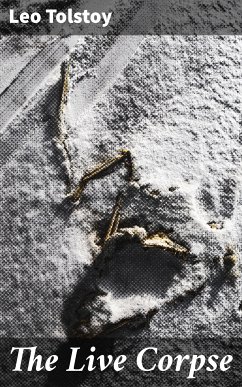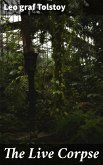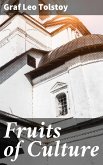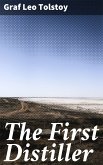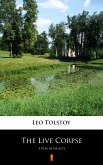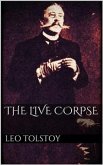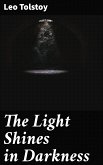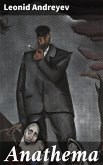In 'The Live Corpse,' Leo Tolstoy delves into the complexities of human relationships and the ethical quandaries surrounding love, duty, and social conventions. Written in 1890, this one-act play employs a stark realism that reflects Tolstoy'Äôs philosophical inquiries into the nature of existence and the moral dilemmas faced by individuals. Through the tragic yet absurd narrative, Tolstoy critiques societal norms, exposing the often hidden grievances within marriages and familial bonds, while illustrating his trademark ability to portray the psychological depth of his characters. Tolstoy, a titan of Russian literature, is known for his profound explorations of human experience and morality, heavily influenced by his own tumultuous life and spiritual crises. His later works, including 'The Live Corpse,' reveal his rejection of materialism in favor of a simpler, more authentic existence. This play, though lesser-known, resonates with his enduring inquiry into the nature of love and human connection, encapsulating his deep-seated belief in the necessity of honesty and sincerity in personal relationships. 'For those intrigued by the intricacies of human emotion and the moral fabric of society, 'The Live Corpse' is an essential read. This work not only highlights Tolstoy's insight into the psyche of his characters but also prompts readers to reflect on their own lives and relationships, making it a compelling contribution to both literature and philosophical discourse.
Dieser Download kann aus rechtlichen Gründen nur mit Rechnungsadresse in A, B, BG, CY, CZ, D, DK, EW, E, FIN, F, GR, H, IRL, I, LT, L, LR, M, NL, PL, P, R, S, SLO, SK ausgeliefert werden.

